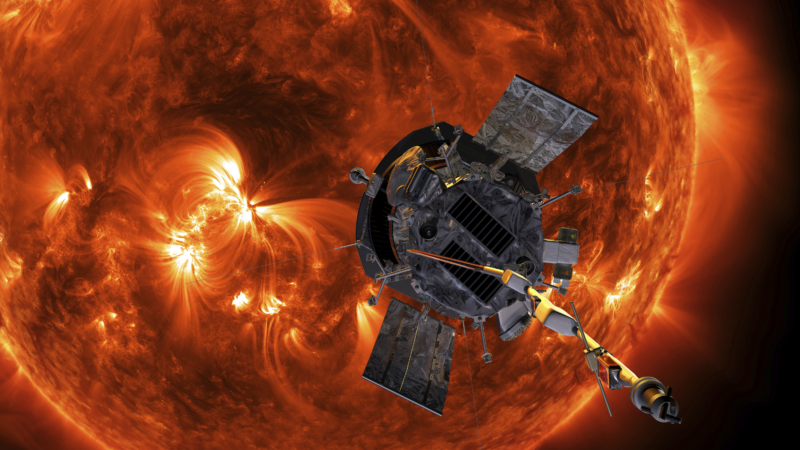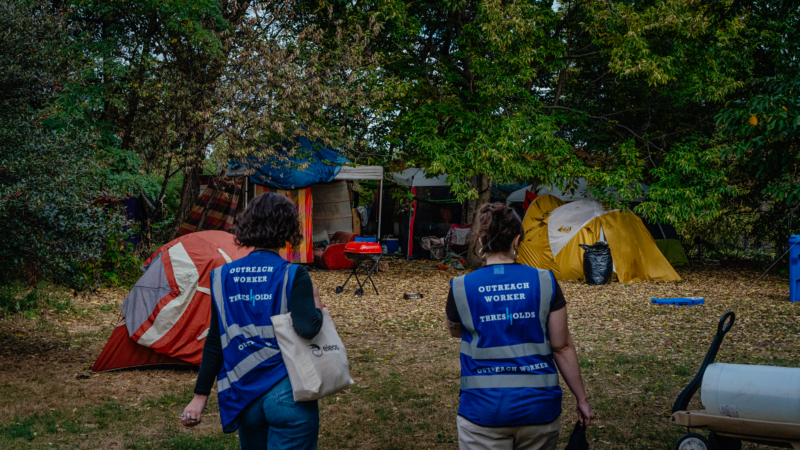Scientists await signal from spacecraft after historic close encounter with the sun
Icarus may be known in Greek mythology as the one who flew too close to the sun. But today, it’s NASA’s Parker Solar Probe that turned the daring journey into reality.
On Christmas Eve, the car-sized spacecraft came within 3.8 million miles of the sun’s surface — marking humanity’s closest approach ever.
To put it in perspective, NASA’s probe was about 10-times closer to the home star than the orbit of the innermost planet, Mercury.
As it flew around the sun, Parker also set a record for the fastest human-made object, reaching an incredible speed of 430,000 mph — which is fast enough to travel from New York to Tokyo in under a minute.
To get so close, the Parker Solar Probe had to endure the sun’s extreme heat and radiation like no spacecraft before it. Scientists won’t know whether Parker survived or its condition until Friday, when it’s expected to send its first signal back to Earth since its fly-by.
“It is breaking all of these records and it’s a, just a total ‘Yay! We did it!’ moment,” Nicola Fox, the associate administrator for NASA Science Mission Directorate, said in a video on Dec. 24.
Parker launched in 2018 as part of an unprecedented mission to study the sun. The goal is to better understand long-standing mysteries, like why the sun’s extended atmosphere is hotter than its surface and the origin of the solar wind. Scientists also hope the mission will help predict solar storms, which can trigger stunning, widespread auroras but also pose a threat to power grids and radio signals.
For the past six years, Parker has been venturing closer and closer to the sun. In 2021, it made history as the first spacecraft to enter the sun’s upper atmosphere, also known as the corona.
NASA said Parker will start sending back data collected during its flybys of the sun at the end of January.
“Until recently, we simply didn’t possess the technology. In 2018, that all changed with the launch of Parker Solar Probe,” Nour Rawafi, the project scientist for NASA’s Parker Solar Probe mission at the Johns Hopkins University Applied Physics Laboratory (APL), explained on TED Radio Hour earlier this month.
He added, “It has revolutionized our understanding of the sun.”
Parker was equipped with a special heat shield that reflects light, absorbs heat and is cooled by a network of water-filled pipes, according to Rawafi.
This design helps keep the probe’s interior near room temperature, even while inside the sun’s outer atmosphere, which can range from 1,600 to 1,700 degrees Fahrenheit.
The mission was named after Eugene Parker, who first predicted the existence of the solar wind in the 1950s. It’s the only NASA mission named after a living person. In 2018, Parker was able to attend the rocket launch that sent the probe into space. He died in 2022 at the age of 94.
Remembering the actors, musicians, writers and artists we lost in 2024
Every year, we remember some of the writers, actors, musicians, filmmakers and performers who died over the past year, and whose lifetime of creative work helped shape our world.
100-plus cities in the U.S. banned homeless camping this year. But will it work?
The burst of new laws follows a landmark Supreme Court ruling, and reflects public frustration with record-high homelessness. But advocates say fines and jail time will only make the problem worse.
Popeye, Tintin and more will enter the public domain in the new year
The copyrights of thousands of 20th-century films, books, compositions and sound recordings expire on Jan. 1, making them free for anyone to share and adapt. Here are some of the highlights.
Minn. Democratic party chair says his wins could help nationally after loss to Trump
Ken Martin helped turn around the Minnesota Democratic-Farmer-Labor Party's finances and secure a streak of statewide wins for the party over 18 years. Now, he wants to do the same thing for the Democratic National Committee.
Giving up alcohol for Dry January? Our newsletter can help you reach your goal
If your New Year's resolution is to drink less alcohol, Life Kit is here to help. Sign up for our Dry January newsletter series, and get tips and strategies to help you stay alcohol-free for a month.
Snowboarder’s death in Swiss Alps avalanche is a reminder that even pros face risk
The death of an Olympic snowboarding athlete is a reminder that even the most skilled and experienced athletes are not immune to the threat of avalanches, and that knowledge is key to staying safe.





